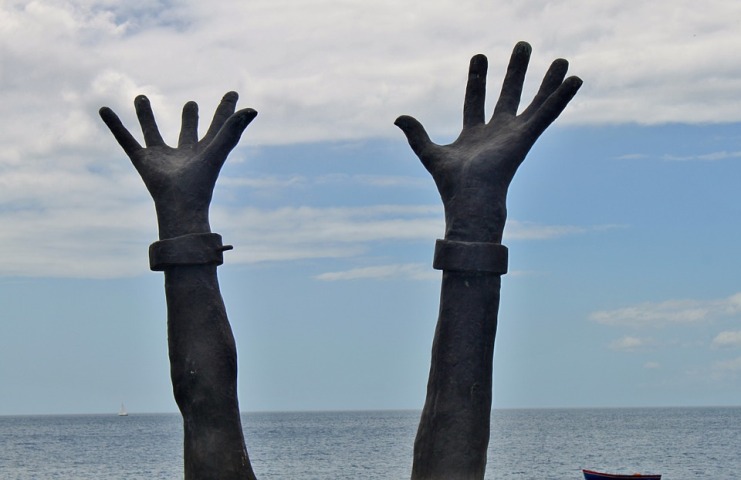Slaves rescued from illegal gold mine run by blacklisted Brazilian
The rescue of 39 slaves from an illegal gold mine in Brazil run by a known offender highlights the difficulty in ending crimes where large profits are involved, labor authorities said. Labour inspector Magno Riga said a team raided a mining operation this month run by Raimunda Oliveira Nunes - who is on Brazil's "dirty list" of people engaged in slave labor - where workers lived in open sheds and without drinking water.

- Country:
- Brazil
The rescue of 39 slaves from an illegal gold mine in Brazil run by a known offender highlights the difficulty in ending crimes where large profits are involved, labor authorities said.
Labour inspector Magno Riga said a team raided a mining operation this month run by Raimunda Oliveira Nunes - who is on Brazil's "dirty list" of people engaged in slave labor - where workers lived in open sheds and without drinking water. It was the third raid on an illegal mining operation run by Nunes - this time with two relatives in the northern state of Para - and her methods of disguising her crimes were becoming increasingly sophisticated, Riga said.
The Thomson Reuters Foundation was unable to locate contact details for Nunes to seek comment. Riga said the Labour Inspector's Office had also been unable to find her. "They attempted to hide what was happening," Riga said, describing how a workers' cooperative was being set up so that the miners would appear to be self-employed, rather than having an employer who would be liable for their working conditions.
Nunes was set to become the president of the workers' cooperative and her sons its directors, Riga said. Nunes was found guilty of enslaving workers in 2018 and received a sentence of five years in prison, but she has not been jailed and is appealing the ruling, Riga said.
About 370,000 people in Brazil - a country of about 210 million - are modern-day slaves, according to the Global Slavery Index by the Australian human rights group Walk Free Foundation.
DIRTY LIST
Brazil's "dirty list", launched in 2004, is a key tool in its efforts to stop businesses profiting from slavery. There are no legal consequences for being listed, but companies and people on the list are barred from state loans, and it is used by private banks to gauge credit risk and by international buyers concerned about their supply chains.
Nunes - who was added to the "dirty list" in April as a consequence of the 2018 raid - was not at the site at the time of the latest raid, but was identified by several workers as their boss, said Riga. Slavery in Brazil is defined as forced labor but also includes debt bondage, degrading work conditions, long hours that pose a health risk or work that violate human dignity.
Workers at the illegal mine in Paras state had to buy food and protective gear from their employers at inflated prices, Riga said, and reports indicated some workers were afraid to leave without paying their debts. He said the mining operation was large, involving several machines worth about R$ 1 million ($186,501) each.
"In three or four months, they caused a huge destruction in the forest," he said. "It looked as if a bomb fell there." Federal prosecutor Leonardo Juzinskas said there was strong evidence Nunes was involved but investigations were ongoing.
"The owner of the machines was certainly someone very wealthy," said Juzinskas. "Perhaps the risk (of a raid) paid off, given the profitability." ($1 = 5.3619 reais)
(This story has not been edited by Devdiscourse staff and is auto-generated from a syndicated feed.)
- READ MORE ON:
- Leonardo
- Australian
- Riga










